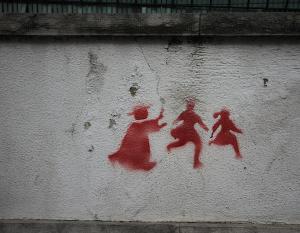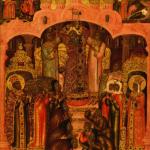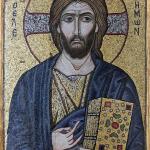
The institutional church has faced and continues to face scandal after scandal because many who had been given positions of power and authority because they appeared to be holy and just were completely unworthy of the trust given to them. They were wolves in sheep’s clothing. In one way or another they abused that trust by the way they treated people, some of course, being far worse than others in this regard. What they had done would have been scandal enough, though, it would have been the kind of scandal which is difficult to avoid because they hid their true nature and it only came to light later. But the greater scandal, and the kind which has caused many to question their relationship with the institutional church, is the kind of response the institutional church has given when some of its members, especially its leaders, have been exposed for terrible wrongdoing, such as sexually abusing someone under their care. Instead of immediately acting for the sake of the victims, and preventing further victims by removing such people from positions of power, the institutional church has had a history of defending the abusers, protecting them and their character, even when it learned that accusations against them were true. When it did this, the institutional church joined in with the abuse, and the victims, and their loved ones, and those who learned what happened to them, end up finding themselves in a situation in which they do not know what to do, as they do not know who they can trust. They think those who should have been most interested in protecting the innocent have lost sight of their duty and therefore, it might be justified to stand apart from them so long as no legitimate reform is had. Even those who feel they can and should stay within the institutional church must understand why others cannot, and support and defend the actions of those who can’t while working to change the institution from within.
When abusers are exposed, especially when their actions are clearly criminal, not only should they be removed from positions of power and authority, they should be turned over to secular authorities, with the institutional church helping the state deal with them as the law indicates. Certainly, in the secular sphere, they have some rights, as their crimes will have to be proven in a court of law, but it is also true, when someone is charged with crimes such as sexual abuse, until they are proven innocent, they will need to be kept separate from the rest of the community, making sure that those who are innocent are not unjustly abused by some vigilante, but also, to make sure those who are guilty do not have the opportunity to continue to abuse others because their crimes have been covered up and hidden.
While, in theory, there seems to be better recognition that the institutional church has had many abusive people put in positions of authority (not just as clergy, but also, those in lay positions of authority, such as teachers in a religious school), it still has not reformed itself enough, and it appears there is more work done in defending its reputation than helping the victims of abuse.[1] Pope St. Gregory the Great understood the problem; he indicated that among those who hurt the church and its mission the most are those who pretend to be holy and just so as to gain positions of power, for once they have them, they can easily use that power for great evil:
For certainly no one does more harm in the Church than one who has the name and rank of sanctity, while he acts perversely. For him, when he transgresses, no one presumes to take to task; and the offense spreads forcibly for example, when out of reverence to his rank the sinner is honoured. But all who are unworthy would fly from the burden of so great guilt, if with the attentive ear of the heart they weighed the sentence of the Truth, Whoever shall offend one of these little ones which believe in me, it were better for him that a millstone were hanged about his neck, and he were drowned in the depth of the sea.[2]
As the church, which is more than the institutional church, is the body of Christ, each person within it is said to represent something of the human body, such as a hand or an eye. Traditionally, some have suggested that in connection to the institutional church, bishops represent eyes, and priests, hands, so that when we read Jesus telling us to pluck out the eye or the hand which would be used for sin, it means we should remove wicked bishop and priests from positions of power and authority, once their wickedness is made known, lest the Christian community is held guilty for their sins:
Hence, if this type of eye, that is, bishop, through his depraved faith and disgraceful manner of life becomes a scandal to the church, he commands him to be plucked out, that is, cast out of the body, lest the people be held guilty for his sin. For it is written that “a little leaven corrupts the whole lump” [1 Cor 5:6]. And again, “Remove the evil man from your midst” [1 Cor 5:13]. The hand is understood to signify a priest who, if he holds to a depraved faith or does not lift uprightly, creates a scandal to God’s people. The Lord commands that he be cut off, that is, cast out, lest the church becomes defiled by his sin.[3]
To be sure, there is more to the church that its clergy. There can be and are many laity in positions of authority, so that, what is said about bishops and priests, can be and should be said about them as well.
Not everyone who becomes a great sinner started out seeking to be one. Many who end up becoming abusive in some fashion or another started out with holy desires, but they did not have the proper discipline, the proper self-control, the proper character needed to live out a holy life when given such authority. This, once again, explains why it can be and is extremely difficult to complete root out such abuse in all situations. They are deluded about themselves, and the people who give them authority, are also deluded, so that in and through such a delusion, but once they have gained a semblance of power, it corrupts them, and instead of doing what they should do and renounce their power, they begin to use it for their passions; they love it for what it brings to them, leading to the conclusion that: “The deluded ruler hastens to obtain power.”[4]
Those who hold a position of rank and authority, bear far greater responsibility for their actions than those who do not, which is why we should expect and demand far greater consequences for their actions than those who have not abused such authority. Sadly, it often appears that the opposite is true, not only in the institutional church, but in society at large: those who have power use it to defend themselves and subvert any attempt top reign in abuses, while those who have no power, have no way to defend themselves, and so receive the greatest punishments for what they have done. While we can understand why this happens in civil society, and why it might be difficult to implement proper reforms, the institutional church should know better, and so it should be held that much more responsible for what happens when it fails to meet the obligations of justice.
When people within and without the institution sees this is not the case, its mission is impeded, as many will have a legitimate reason not to want to do anything with it. Instead of blaming the victims, or those who are concerned about them, the institutional church should look within and accept, so long as it needs reform, people can justly stand apart from it without losing their relationship with the church of Christ itself (as the church of Christ subsists in the institution, but is not bound by it). It should not try to defend itself with spiritual abuse, threatening those who feel they must stand apart from it, telling them that if they do so, they will separate themselves from the body of Christ, and so lose all chance of salvation. Even St. Augustine said differently.
[1] Abuse can be of many kinds. While sexual abuse is the kind most commonly discussed, there can be and are other forms of abuse, from physical abuse (such as torture), to psychological and spiritual abuse.
[2] St. Gregory the Great, Pastoral Rule. Trans. James Barmby, DD in NPNF2(12): 2-3.
[3] St. Chromatius of Aquileia, Sermons and Tractates on Matthew. Trans. Thomas P. Scheck (New York: Newman Press, 2018), 201-2 [Tractate 23].
[4] Xunzi, The Complete Text. Trans. Eric L. Hutton (Princeton: Princeton University Press, 2016), 117.
Stay in touch! Like A Little Bit of Nothing on Facebook.
If you liked what you read, please consider sharing it with your friends and family!
N.B.: While I read comments to moderate them, I rarely respond to them. If I don’t respond to your comment directly, don’t assume I am unthankful for it. I appreciate it. But I want readers to feel free to ask questions, and hopefully, dialogue with each other. I have shared what I wanted to say, though some responses will get a brief reply by me, or, if I find it interesting and something I can engage fully, as the foundation for another post. I have had many posts inspired or improved upon thanks to my readers.













